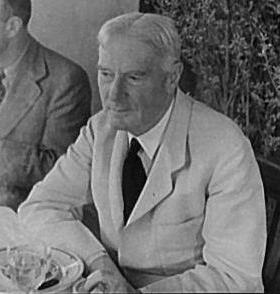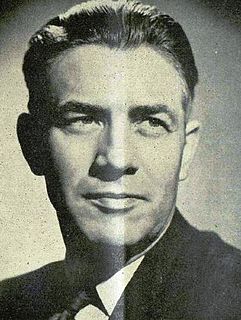A Quote by Norman Douglas
There is in us a lyric germ or nucleus which deserves respect; it bids a man to ponder or create; and in this dim corner of himself he can take refuge and find consolations which the society of his fellow creatures does not provide.
Related Quotes
The purpose of life seems to be to acquaint a man with himself and whatever science or art or course of action he engages in reacts upon and illuminates the recesses of his own mind. Thus friends seem to be only mirrors to draw out and explain to us ourselves; and that which draws us nearer our fellow man, is, that the deep Heart in one, answers the deep Heart in another, - that we find we have (a common Nature) - one life which runs through all individuals, and which is indeed Divine.
A human being without the proper empathy or feeling is the same as an android built so as to lack it, either by design or mistake. We mean, basically, someone who does not care about the fate which his fellow living creatures fall victim to; he stands detached, a spectator, acting out by his indifference John Donne's theorem that "No man is an island," but giving that theorem a twist: that which is a mental and a moral island is not a man.
Does the open wound in another's breast soften the pain of the gaping wound in our own? Or does the blood which is welling from another man's side staunch that which is pouring from our own? Does the general anguish of our fellow creatures lessen our own private and particular anguish? No, no, each suffers on his own account, each struggles with his own grief, each sheds his own tears.
Everyone carries a part of society on his shoulders; no one is relieved of his share of responsibility by others. And no one can find a safe way out for himself if society is sweeping toward destruction. Therefore, everyone, in his own interests, must thrust himself vigorously into the intellectual battle. None can stand aside with unconcern; the interest of everyone hangs on the result. Whether he chooses or not, every man is drawn into the great historical struggle, the decisive battle into which our epoch has plunged us.
...men endeavor to sink us still lower, merely to render us alluring objects for a moment; and women, intoxicated by the adoration which men, under the influence of their senses, pay them, do not seek to obtain a durable interest in their hearts, or to become the friends of the fellow creatures who find amusement in their society.
No society can exist if respect for the law does not to some extent prevail; but the surest way to have the laws respected is to make them respectable. When law and morality are in contradiction, the citizen finds himself in the cruel dilemma of either losing his moral sense or of losing respect for the law, two evils of which one is as great as the other, and between which it is difficult to choose.
How you make it in this world, for the most part, depends more on what you do as opposed to whether people like or dislike you. In order to produce a successful life, one must find ways to please his fellow man. That is, find out what goods and services his fellow man values, and is willing to pay for, and then acquire the necessary skills and education to provide it.
In the first section of the Doctrine and Covenants we read that 'the Lord shall come to recompense unto every man according to his work, and measure to every man according to the measure which he has measured to his fellow man.' (D&C 1:10.) This principle, showing the manner by which God will judge us, puts a new light upon the commandment to love our neighbors as ourselves, and should persuade us to take that law seriously.
Every man, in proportion to his virtue, considers himself, with respect to the great community of mankind, as the steward and guardian of their interests in the property which he chances to possess. Every man, in proportion to his wisdom, sees the manner in which it is his duty to employ the resources which the consent of mankind has intrusted to his discretion.
[M]an is condemned to be free. Condemned, because he did not create himself, in other respect is free; because, once thrown into the world, he is responsible for everything he does. The Existentialist does not believe in the power of passion. He will never agree that a sweeping passion is a ravaging torrent which fatally leads a man to certain acts and is therefore an excuse. He thinks that man is responsible for his passion.






































